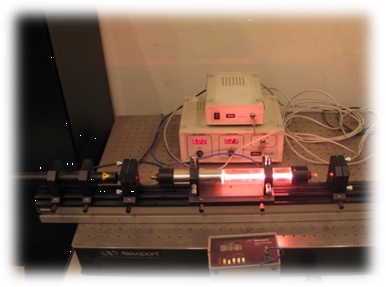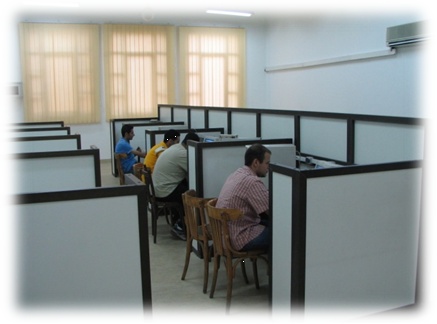Cross-layer Optimization for Delay-Sensitive Applications over Wireless Multihop Mesh Networks
Professor Elsayed Mostafa Saad
Professor Khaled Muhammad Fouad Elsayed
Associate Prof. Mohamed M. Khairy
In this thesis, energy-limited wireless multihop mesh networks are considered. Minimizing the total transmission energy in the network, while satisfying the applications' delay constraints, is the target of our optimization problem. To achieve this goal, energy-efficient design should be supported across all layers of the protocol stack through a cross-layer design. A cross-layer optimization framework is proposed under a constraint that all successfully received packets must have their end-to-end delay smaller than their corresponding delay deadline. This thesis proposes energy-efficient joint routing, scheduling, and link adaptation strategies that minimize the total transmission energy in the network. The proposed cross-layer energy-aware algorithms allocate resources dynamically according to channel quality and traffic load so as to minimize the overall transmission energy, while satisfying the given packets delay and bit error rate constraints. The resources considered are the transmitted power and modulation in the physical layer, scheduling in the link layer and routing in the network layer.
In addition to the proposed optimal cross-layer solution, suboptimum solutions are presented as well. The simulation results show that, under the same conditions, the proposed optimum algorithm has less energy consumption than routing algorithms that consider delay constraints only. Moreover, simulations show that the suboptimum algorithms have performance near to the optimum algorithm with a huge reduction in the complexity.
Interference represents one of the key limitations in wireless networks. Hence, simple scheduling algorithms, like TDMA, is used in most low complexity wireless networks to mitigate interference. However, for delay sensitive applications, TDMA scheduling can give inadequate time slots for some users. Therefore, transmitters need to transmit with higher energies to meet the delay deadlines. On the other hand, when multiple links are active at the same time, the links may interfere with each other and higher transmit energies may be needed to meet the delay deadline. Therefore, in addition to the optimum TDMA scheduling and to optimally minimize the total transmission energy, mixed TDMA-Simultaneous transmission strategy is proposed.
In mixed TDMA-Simultaneous transmission strategy, we find the optimum sharing links that can work simultaneously to minimize the total transmission energy.
In mixed TDMA-simultaneous transmission scheduling, we combine between TDMA transmission for the strongly interfering links, and the simultaneous transmission of weakly interfering links. We start by studying the feasibility of simultaneous transmission under a delay deadline constraint and introduce an algorithm to find the optimal cross layer parameters that result in minimum energy transmission under delay deadline constraint. We then introduce a mixed TDMA-simultaneous transmission scheduling and show, through simulation, that it offers big energy savings compared to pure TDMA scheduling.
https://dl.dropbox.com/u/38468683/Theses/Thesis_Alaa_2011.pdf




